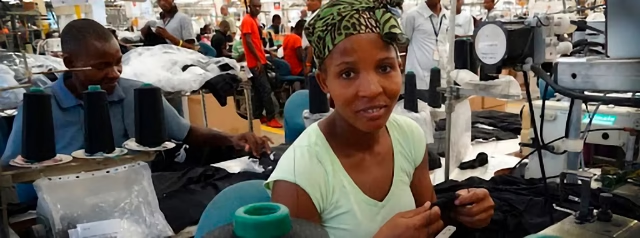Tension turns to calm as the Haitian government suspends a new wage tax that sparked mass protests at the CODEVI free trade zone in the Northeast. The industrial park, which contributes significantly to the local economy, was brought to a halt, costing an estimated $500,000 in lost production every day.
With average worker wages hovering around $5 a day, the stakes were high for both the employees and the broader economic stability.
Since Oct. 6, CODEVI—owned by Grupo M—has stood quiet.
Hundreds of workers, supported by unions, walked off to protest the government’s new fiscal “regularization” measure.
With growing anger and halted lines, management suspended operations, citing safety concerns.
The government moved to defuse the crisis. In a joint statement, the Economy and Finance and Social Affairs and Labor ministries announced two measures to end the impasse: “We believe these steps are necessary to stabilize the situation and address the immediate concerns of all stakeholders,” said Minister of Finance Pierre Lemaire. No temporary wage deductions by the General Directorate of Taxes will be taken from affected workers. A tripartite meeting with the executive branch, unions, and employers will discuss the minimum wage. “We remain committed to advocating for fair treatment and sustainable wages,” emphasized Emilie Duval, a union leader. Meanwhile, workers like Jean-Claude, a sewing machine operator, expressed cautious optimism: “It’s a relief for now, but the real test will be in the upcoming negotiations.”
In response to the temporary suspension, unions agreed to call on workers to return to work beginning Wednesday, October 8.
Earlier in the week, CODEVI clarified its role.
In a statement, the company stated that it only enforces Haitian law and is not involved in government decision-making.
Management said operations were halted primarily to protect staff and urged transparent dialogue to avoid any confusion that could be detrimental to workers.
The crisis highlights the sensitivity of wage issues in Haiti’s strained economy.
The government has retreated in the face of protests, but the issue of how to fund the state remains unresolved.
Calm is returning at CODEVI, but the coming talks among government, employers, and unions will be crucial.
While temporary measures provide immediate relief, there is a pressing need to explore structural solutions that can lead to lasting stability. Negotiators must balance the state’s revenue needs and workers’ limited purchasing power. Introducing wage-setting mechanisms and considering tax incentives are potential approaches that could prevent future unrest and contribute to a more sustainable economic environment.
Negotiations resume under pressure. Wednesday’s restart at CODEVI looks more like a pause than a resolution in this dispute.
Since 2002, CODEVI has created 20,000 jobs but is regularly rocked by protests.








